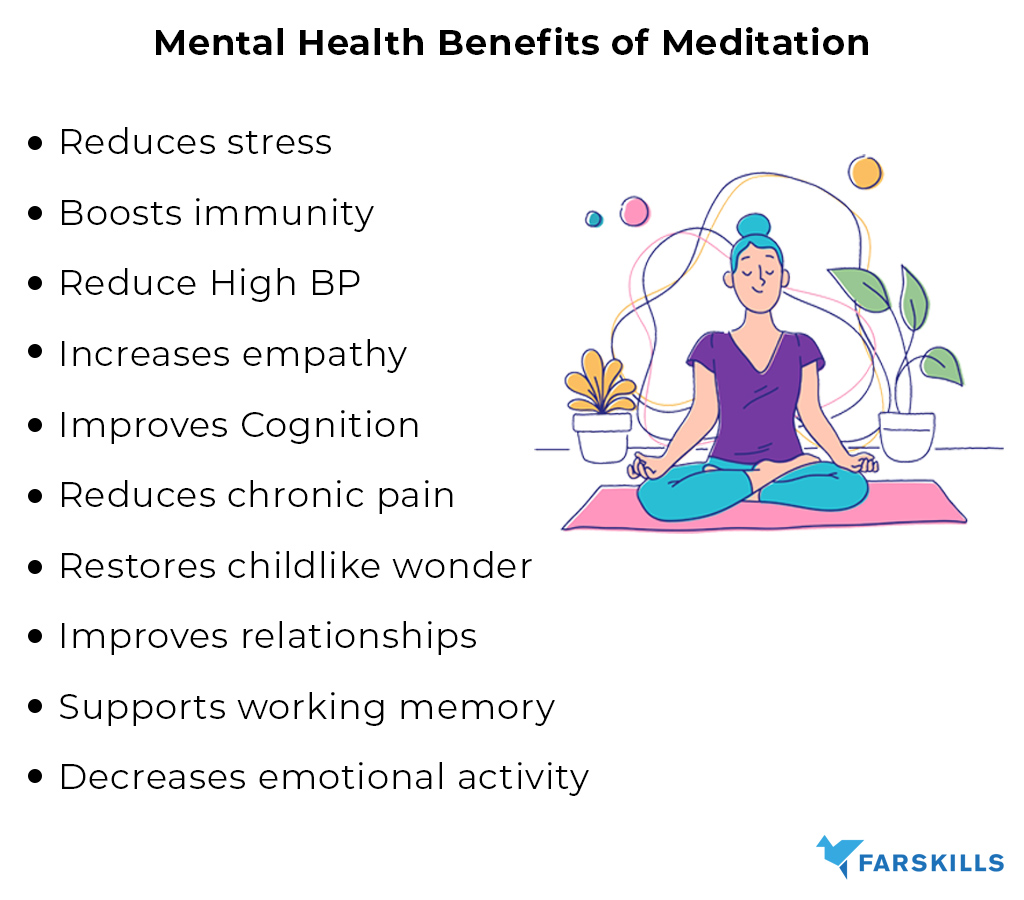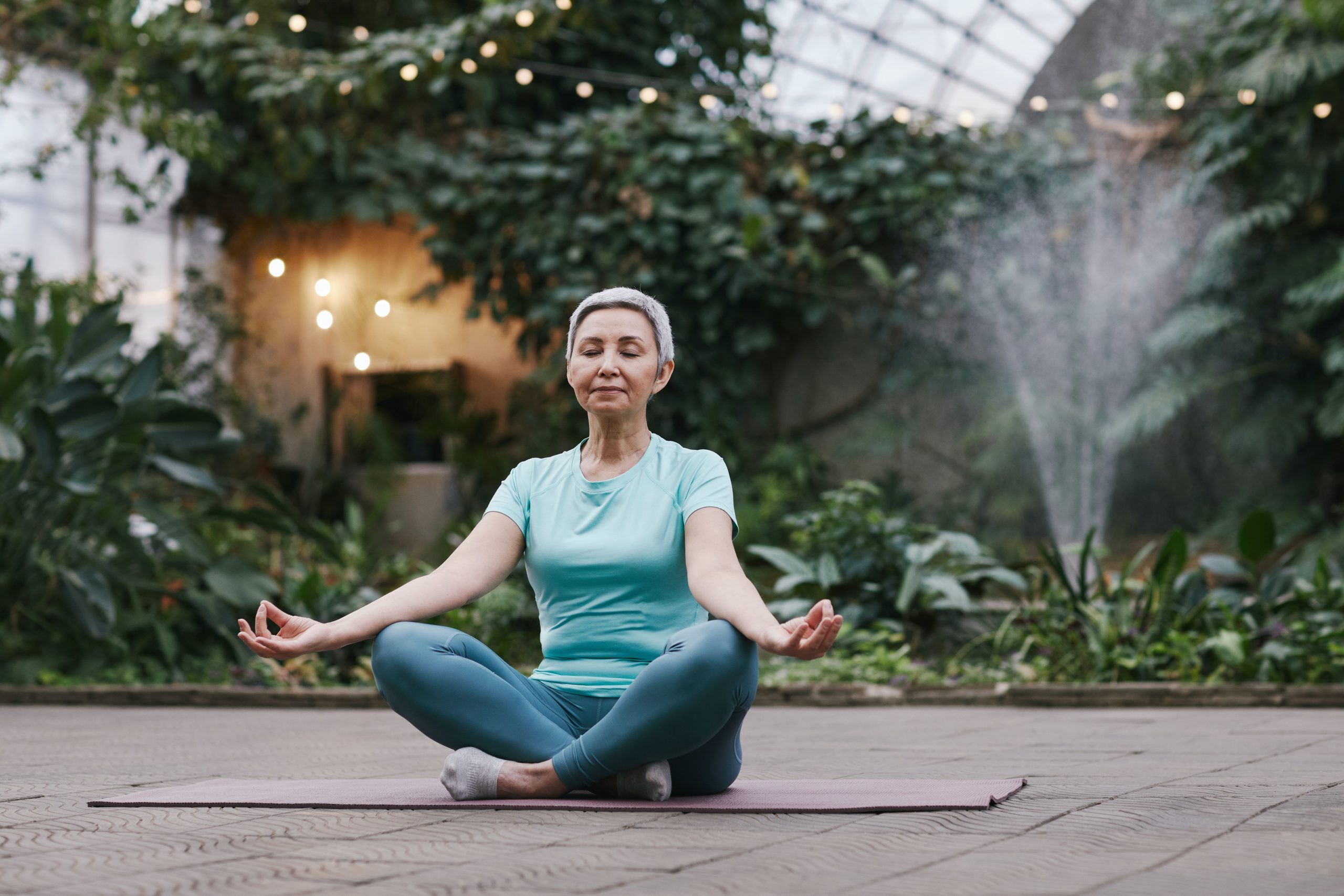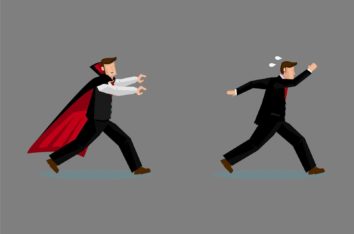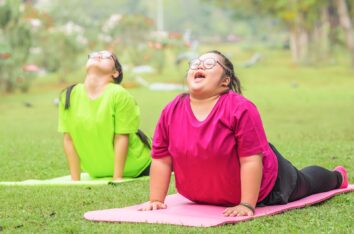Improve Mental Health Through Various Meditation Techniques
In recent years, depression has become one of the major causes of handicap and suicide. In addition, people suffering from severe mental illnesses live shorter lives. According to 2021 research, UK participants faced difficulties regarding health, families, and finances whereas German respondents reported hopelessness about the pandemic and concerns about the stability of life.
Meditation has a significantly positive impact on mental health conditions like depression, addiction, anxiety, and loneliness.
Types of Meditation
There are many different types of meditative techniques like
- Mindfulness
- Yoga
- Zen
- Transcendental
- Loving-kindness
- Open monitoring
- Body scan
- Breath-focused
- Focused attention
Yoga
Yoga is exercised to create harmony between mind, body, and spirit. It came into the Western world in the late 1900s from Indian culture. One should pick a yoga that is in line with their goals and values; this helps to regularly practice it. In yoga, there are multiple types with different purposes and focuses. The yoga types are Yin, Hatha, Bikram, and many more.
Types of Yoga for a sound mind
Yin Yoga
The pace of this type of yoga is slow as compared to other types. It means that body postures are held for a minute and after some practice, time can be extended to five minutes. It has a deep connection with martial arts. Just like any other yoga practice, the purpose of yin yoga is to increase blood circulation in joints and enhance flexibility in the body. The emphasis is on the lower body and connective tissues in Yin Yoga.
Hatha yoga
It is a gentle type of yoga in which opposite factors go together to create balance and harmony in the individual’s life e.g. physical and mental, breath and body, strength, and flexibility. New learners can greatly enjoy it. There is a mixture of body movements and breathing routines in order to achieve strength in muscles and harmony holistically. Some mental health benefits of Hatha yoga are improvement in insomnia, depression symptoms, and anxiety issues.
Bikram yoga
It is a kind of hot style yoga with strict rules for body movements. The temperature in the room should be 105 °F or approximately 40°C. It is a rigid practice with a lot of rules, so expecting flexibility from teachers is fruitless. A coach shared that the participants of this yoga can easily do the required physical movements in its hot environment. Benefits include improved blood circulation, enhanced concentration, minimized stress, and boosted mental toughness.
Restorative yoga
In this type of yoga, one will see the practitioners lying on their mats and de-stressing. The purpose behind it is to reach relaxation by staying in a certain position for at least five minutes. In other words, this is self-care yoga. Some of the mental health benefits are relaxation, mood enhancement, well-being improvement, and many more.
“As a longtime practitioner of yoga and a person who's been involved in physical fitness my whole life, I can tell you, yoga helps you achieve altered states of consciousness. It is not just stretching. The only way you can say that it's stretching is if you haven't done it, or that you haven't done it rigorously for a long period of time.”- Joe Rogan
Types of Meditation for improving mental health

Body scan
The purpose of this meditative practice is to examine the body and especially pay attention to tensed areas of the body. With respect to direction, participants can begin from head to toe or toe to head. Body scanning strategy can be practiced with visualization as well. In this way, the listener follows the instructions of an instructor and attains relaxation. Mental health benefits of body scan encompass awareness of body and stress for better relaxation, reduction in cravings, and a significant boost in self-compassion.
Loving-Kindness
The purpose behind this meditative exercise is to nurture love and kindness for everybody without exception. The individuals imagine sending love and kindness to everyone while breathing deeply. The exercise is repeated until the person really internalizes its purpose. People dealing with anger, frustration, and relationship issues can significantly gain from this practice. Finally, it has been shown to improve the symptoms of depression, anxiety, and Post-Traumatic Stress Disorder (PTSD).
Some Additional Tips
Meditative practices are about staying in the present rather than focusing on the results. Hence, enjoying the process and learning from mistakes is a helpful approach. Meditation skills take time to master so it is understandable that some beginners can get frustrated initially. So, being distracted is normal and with practice, everything gets better. So, an individual should be gentle and kind with oneself.
In addition to it, exploring different options can be very helpful for novices. Dedicating a space at home can help build a habit. Finding like-minded people for meditation also helps to be regular and enjoy the learning process.
“Meditation is all about the pursuit of nothingness. It's like the ultimate rest. It's better than the best sleep you've ever had. It's quieting the mind. It sharpens everything, especially your appreciation of your surroundings. It keeps life fresh.”- Hugh Jackman
Frequency of Practice
It is important to note that there is no right and wrong answer for this and the number of sessions also depends upon the person’s goals. Generally speaking, once a week is better than no meditation. There is also an option of once per day but this should start when one has developed the habit of doing it. Keeping a fixed time in a day or a week can help in building the habit over time.
What Mental Health Conditions can be Improved Through Meditation
Meditation has shown to be effective for depression, generalized anxiety disorder (GAD), anger issues, and PTSD. It has even shown improvement in the fear of relapse regarding cancer in its survivors.
Conclusion
In conclusion, meditation tools are extremely beneficial for holistic care. In other words, it not only benefits the body but also the mind and the spirit. As a sustainable, and long-term strategy, beginners should enjoy the process and start small.



